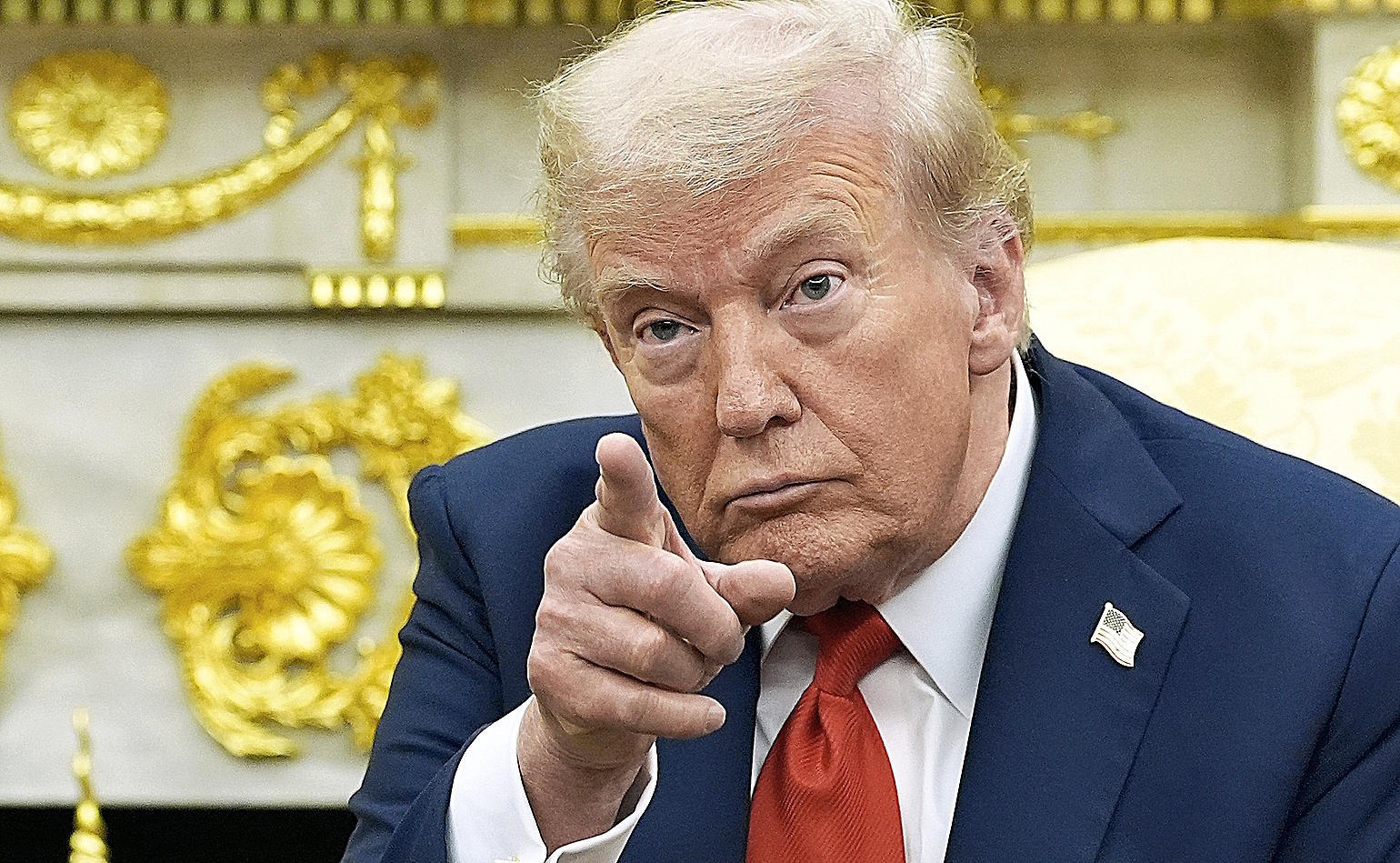The President of the United States, Donald Trump, expressed his deep displeasure with Spain on Thursday for its refusal to reach a 5% of GDP in Defense spending, as agreed by NATO this year at the summit in The Hague. In recent months, the President had escalated his tone on several occasions. Before, during, and after that international meeting, but today, surprisingly, he escalated like never before, even suggesting that our country could be expelled from the Alliance.
This was stated during a press conference in the Oval Office with the President of Finland, Alex Stubb. In the context of the invasion of Ukraine and threats to international security, journalists present asked Trump if he would defend the Nordic country if attacked by Russia. His immediate response was yes, as it is an allied country. Trump then unexpectedly shifted the conversation to Spain and its controversial decision to commit to the agreements of The Hague but stating that they will not reach 5% because it will not be necessary. This topic had previously angered Trump and he has revisited it time and time again.
"I asked everyone to spend 5% of GDP, instead of 2%, and many said it wouldn't happen, that it was impossible. But it happened almost unanimously. There was only one laggard, Spain. Spain... They will have to call them and ask why they don't want to. And they are doing well, surprisingly with the things we have done they are doing well [it's not that they can't]. Maybe we should kick them out of NATO, frankly," said the President, amidst the uncomfortable silence of the pro-European Stubb.
Minutes later, the Spanish Government expressed its "maximum tranquility" following the remarks from the White House. "Spain is a full-fledged member committed to NATO. And it meets its capability objectives as much as the United States," explained government sources consulted by Europa Press.
Until now, Trump had raised the possibility of the US leaving NATO, especially during his first term. He had even repeatedly threatened not to defend countries that did not contribute what he considered fair. However, he had never suggested the possibility of expelling specific countries due to lack of investment, a point that Spain has always argued is offset by its contributions to missions and what is known as "capabilities."
This year, the President disrupted the summit in The Hague by flatly refusing to sign commitments without reservations, unlike the other countries. He also did not accept formulas suggested from Brussels to say yes and then use all the flexibility. In contrast, Pedro Sánchez took a much more delicate approach, forcing a confrontation with Trump amid huge political scandals at home.
NATO is not at all like the EU, where there is discussion, fighting, bargaining, or blocking. Alliance summits are formalities. Everything is already decided, and it is not normal to have a clash, specific frictions, or countries resisting when there is a huge consensus. Sánchez, in The Hague, signed. But he never accepted the need to reach 5%, stating that he will fulfill all required objectives and obligations with others, but that it can be done with a much lower investment. Something that the Secretary-General himself, Mark Rutte, has publicly stated is not possible, a statement that Trump has refuted.
"There were Germany, France, and Spain... although... Spain did not comply, by the way, but it will, guaranteed. It was the only country that tried something like holding back from contributing money, but it will," said Trump at the end of June, also in the Oval Office, in the days following the summit in The Hague.
Since summer, tensions with some EU and NATO members most exposed to the Russian threat have been escalating. Their discontent is very visible, and they also publicly state that commitment is non-negotiable, that solidarity is the basic pillar of the largest military alliance in history. They emphasize that there can be no speculation or hesitation, especially because, as Rutte has said in his favorite image since taking office, "a Russian missile would only take 10 minutes longer to reach Spain" than to hit the center of the continent.
The debate on spending, however, is not closed within the organization. In 2014, members committed to reaching 2% of GDP within a decade. This has not been achieved. Almost, but not quite. All efforts were made after the shock of Trump's first presidency and his threats to break up NATO. In his early summits, he proposed reaching 3% and 4%, but leaders managed to contain his anger with promises to continue investing and publicly crediting him for it. This is recounted by the then Secretary-General, Jens Stoltenberg, in his memoirs published this week.
Reaching 5% is almost impossible for the vast majority of countries, which have economies with very low growth and political crises. So many, like Spain itself, are looking for creative solutions. Such as including expenses in cybersecurity, fighting climate change, or various broader items. Or even infrastructure, like Italy, which is trying to include a bridge to connect the peninsula with the islands.
